Why Learn Kung Fu
In-depth Student Interview with Kung Fu Master Bao
What makes Shaolin Kung Fu unique? What is the true purpose of this martial art? Is it ever too late to start Kung Fu? We sit down with Master Bao, a veteran practitioner of Chinese martial arts, to find out about his journey in Kung Fu, its philosophy, and more.
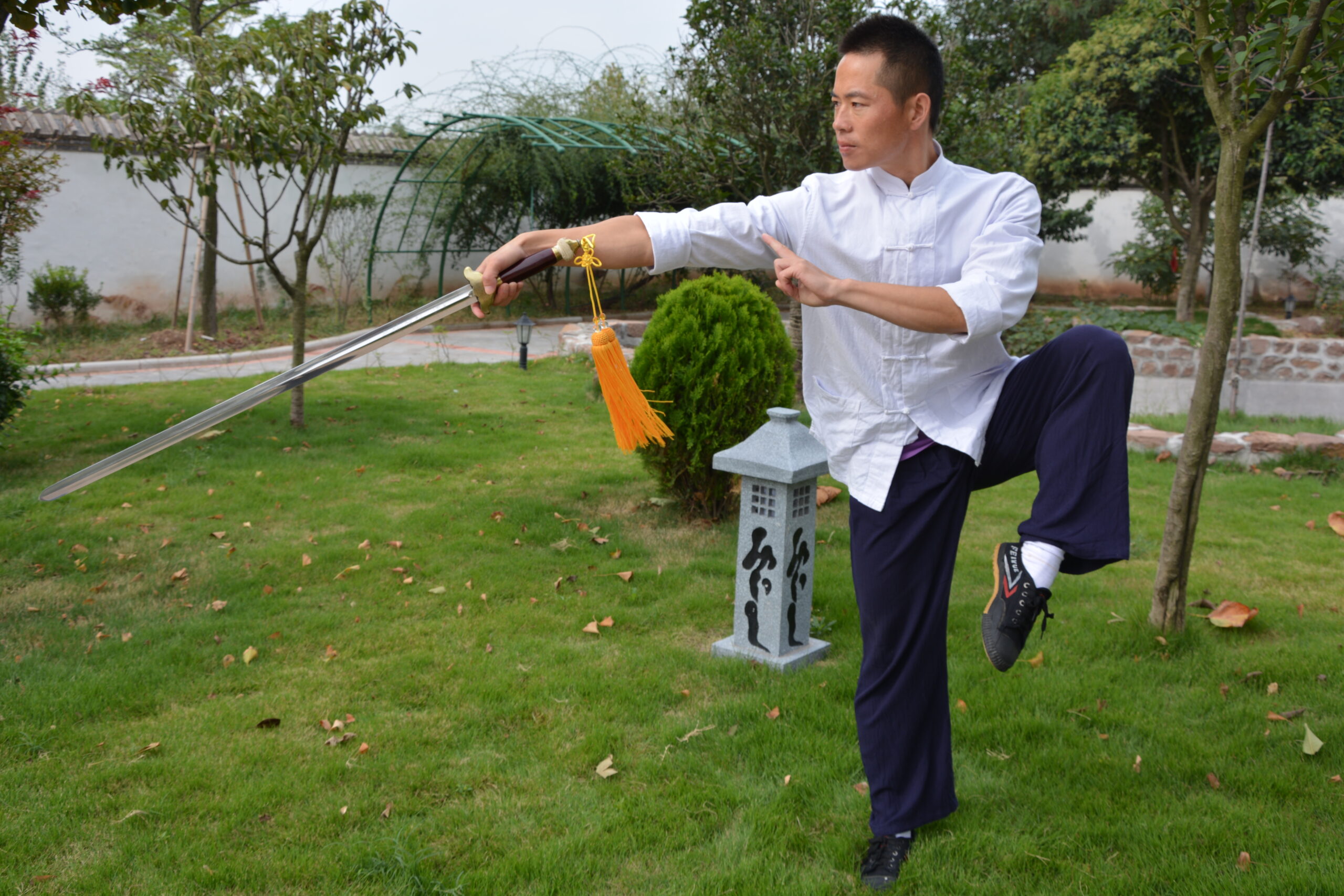
1) What is Kung Fu? What makes Shaolin Kung Fu unique?
Recap: Master Bao’s response reminded me of our discussion on this topic in Wushu theory class. He introduced the word Kung Fu, and how we can find a deeper meaning in that than just regarding it as a martial art or sport, but as personal contemplation and more. It can be molded into your life and become part of your soul. It is “self-cultivation.”
Master Bao: In earlier times the popularity of Shaolin rose because of its presence in film, in particular, “Shaolin Temple.” However the system of martial arts was around long before the movie was released, but it did still raise awareness of Shaolin to a vast number of people. Aside from simply being of use in entertainment, Shaolin Kung Fu is something worthy for people to know and learn, and that is what people realize when they practice it. People can grow because of it, it can change their life. It has ups and downs, because there are so many things included in Shaolin, there is a historical and traditional aspect to it, but it is much more than just an old school of martial art or learning fighting skills.
There are three main aspects of Shaolin Kung Fu: Kung Fu (the martial art), Zen “Chan” (the ability to understand the universe; also self-cultivation, meditation. When we meditate it’s when we are closest to Zen.), and Buddhism.
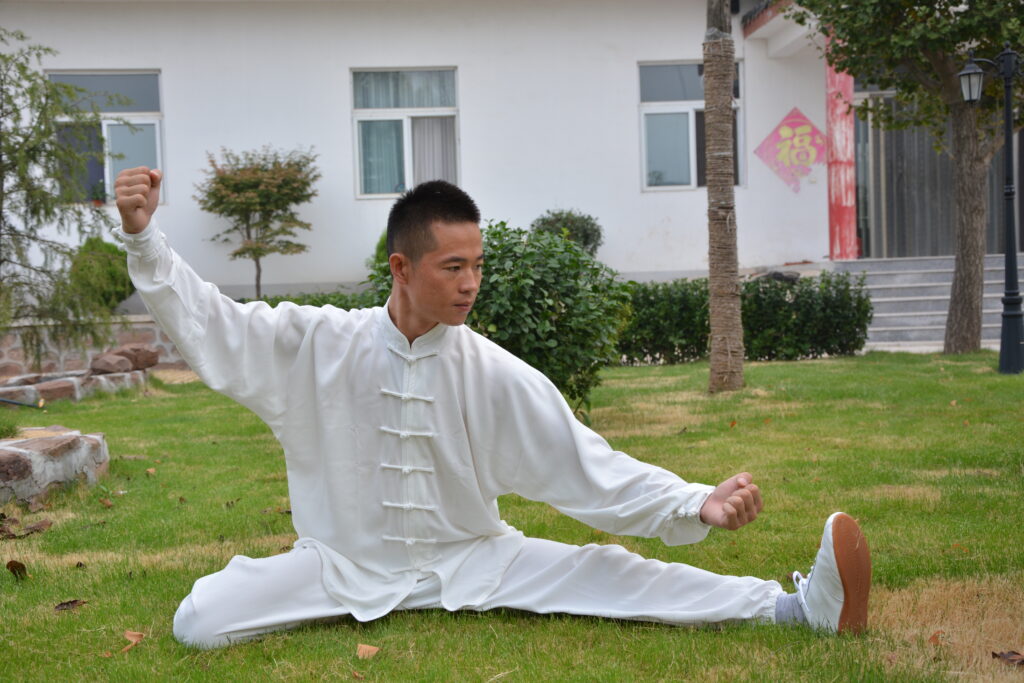
2) What is the most important part of training for Kung Fu?
Master Bao: Willingness, and perseverance. When someone decides to train/learn Kung Fu they need to overcome all the difficulties they meet, no matter how tired they get or how much pain and danger they may face. You have to keep going. “If you are able to run 100 meters, then you should run 101 meters. That 1 meter is your Kung Fu.”
3) How can the average person benefit from training in Kung Fu or martial arts?
Master Bao: The most direct benefit is to get physically stronger and healthier. If you expect greater benefits, then it depends on how much time and effort you put in. The first step in learning Kung Fu for an average person is to get healthy and fit, then the second step is to gain a stronger body, down to tougher tendons, muscles, and skin. The longer the study, the more even the insides, organs, and meridians will become stronger and healthier. So by then you can control your body, the way you want. Then it’s mentality.
Student: What if someone gets injured?
Master Bao: The simple answer is this: the process of learning is to learn, get injured, get better, learn, get injured, get better. It is inevitable.
Recap: Master Bao then told a story of when he got badly injured during training:
The doctor told Master Bao that he couldn’t train for 100 days when he injured a “large tendon in his leg” (gesturing to the back of his leg). Every step hurt a lot, but by continually moving one more step, he controlled the pain more; his mind became stronger with every step. So recovering from injury is also a way of training. He injured himself from stretching. This was a year into his training. His master stood by with a stick and if anyone couldn’t get down to a split they would be severely beaten. Master Bao was not as flexible yet, but because of fear, he forced himself down. He began training 3 days after his injury and recovered fully 20 days later.
4) Shaolin seems to be a particularly athletic system of Kung Fu. Is there any age when it’s “too late” to start?
Master Bao: There is no rule about what age to start. The above-mentioned steps do not have to be in that order, sometimes someone can start from the second step if they are already healthy. If there is a 60-year-old man, there are still things he can learn such as health care Qi Gong. Young martial artists train the body more with external martial arts, but older martial artists focus more on the inside, on the internal arts. It’s never too late, they don’t have to do jumps and rolls at 70, but the older you start the less overall benefit you can get.
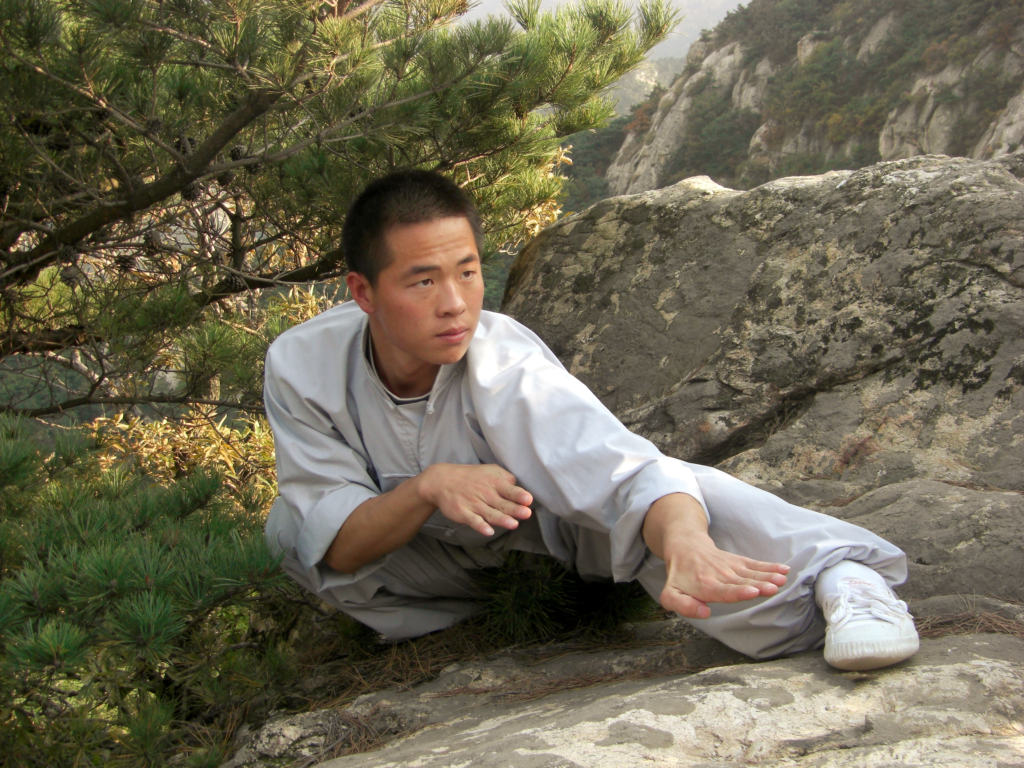
5) Why do you want to teach Kung Fu?
Recap: “I am going to be honest with you.” When he was little, Master Bao was also attracted by the movie “Shaolin Temple,” and he was surrounded by friends who practiced martial arts. Kung Fu seemed cool and mysterious. When he started to actually learn and train, his love for it grew. Many people felt disappointed when they started to learn because it wasn’t the same as in the movie. He stated you cannot actually say you like it or not until you’ve trained for a while and have some knowledge of it. You will like Kung Fu more when you gain something from it. The efforts you put in are returned.
He decided to teach Kung Fu as a kind of mission he got from his master, a tradition to carry on the teaching. His master expected him to carry on the knowledge. While he does like to perform, compared to teaching others, becoming a Kung Fu star is less likely to happen.
What makes Kung Fu great is that there must be people who are willing to teach, spend time and energy, and show the beauty of Kung Fu for it to survive. And for thousands of years, it has! When deciding to teach, he thought about his own personality and whether he was suitable to be a teacher. When he teaches, he feels satisfied. When his students achieve something it’s almost as if he feels the same sense of accomplishment they do.
6) Why teach foreigners?
Recap: First of all there are many teachers who teach locals, Chinese people. There are enough. Master Bao previously thought about teaching abroad, but it is financially difficult. He thinks it is something special to teach foreigners who want to learn Kung Fu in China. You have all traveled far from home, and are away from distractions to be focused on learning. Foreign students can also get in touch with Chinese culture and life; with living in this environment. This knowledge will be helpful for training in Kung Fu.
7) What can or should be enjoyable about learning Kung Fu?
Master Bao: The most enjoyable thing should be that the students can realize clearly how their body changes. You can actually feel like you are breaking your own limits. It’s kind of like the feeling you get when you’ve never seen a flower or animal in your whole life, and seeing it for the first time. It also brings pride to people, or a superior, better-than-average feeling– a higher level of confidence. Although Kung Fu is, in essence, fighting skills, learning and training in Kung Fu can also help someone become more gentle. So after learning Kung Fu you can not only control your body, but also your temper. You have the power to smash something, but you choose to be gentle.
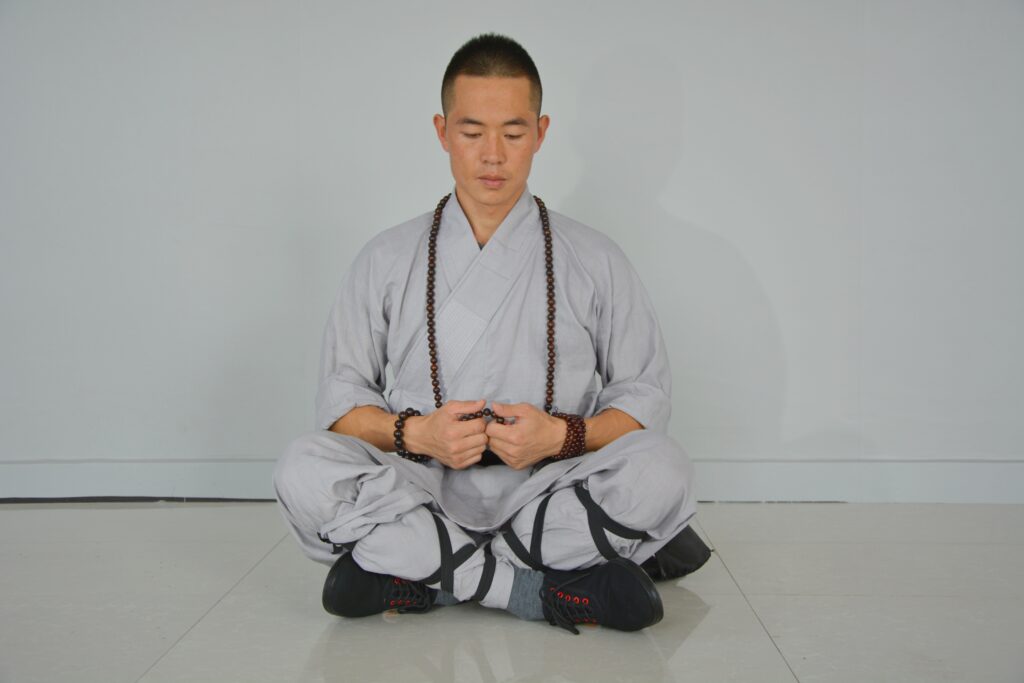
8) What is the difference between fighting and martial arts?
Master Bao: The most shallow martial art practitioner, who shouldn’t even be called a “martial artist,” has a goal or purpose to fight, to grow stronger, to bully people.
The next level individual wants to get accomplishment from practice. Their purpose is to improve THEMSELVES. They will find their value from competition, and better themselves by fighting in competitions (they are middle-level).
For the highest level individual, martial arts is not just a way of learning fighting skills but a personal pursuit of Kung Fu as belief or faith.
Student: Are they doing it to pursue a deeper meaning of the universe, of life?
Master Bao: Dui- correct.
9) What is your greatest challenge as a teacher at an international school like this?
Master Bao: If there is a student who, before they really get to know Kung Fu, already decided they don’t like it, and gave up before they tried. The students who don’t give the masters a chance to show what Kung Fu is. It is not something that can be understood in a week.
read more
To view the full student interview, including such questions as weapons training, spirituality, and benefits to those in the field of theater, view our blog post at the link below.
More Interviews
Life As A Shaolin Temple Disciple
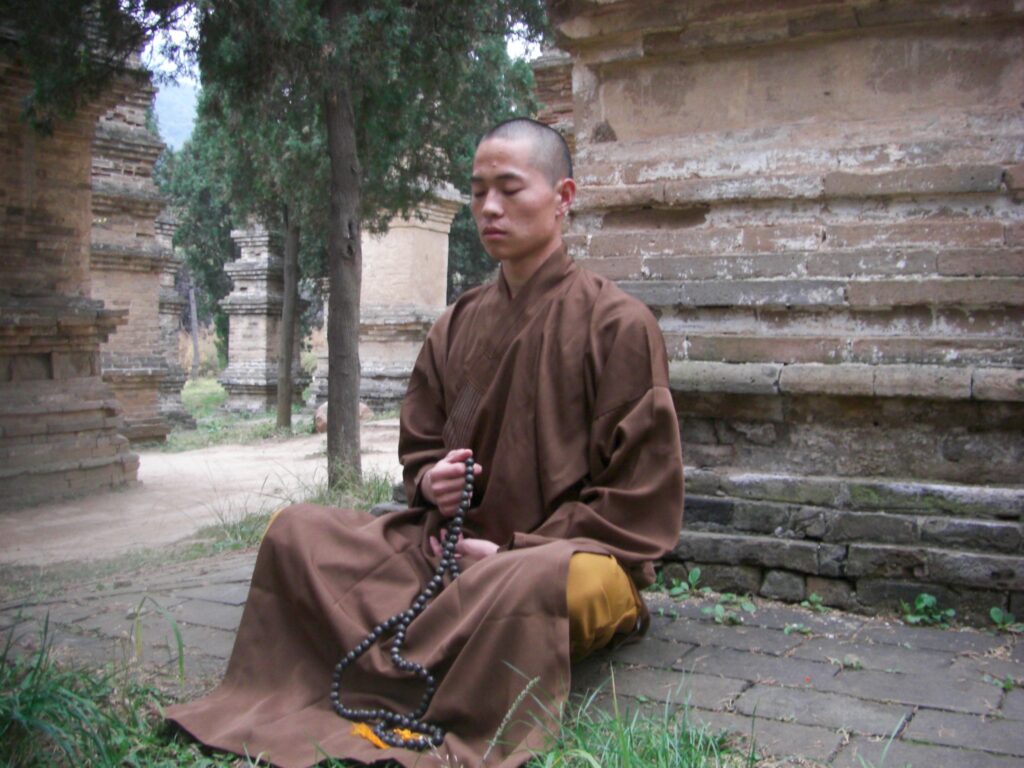
Have you ever wondered what life would be like living at the Shaolin Temple? Turns out its not all flying monks and roses. In this article, 32nd Generation Shaolin Warrior Monk Master Bao (Shi Xing Jian) recounts his life growing up at the Shaolin Temple.
The Essence
of Wushu
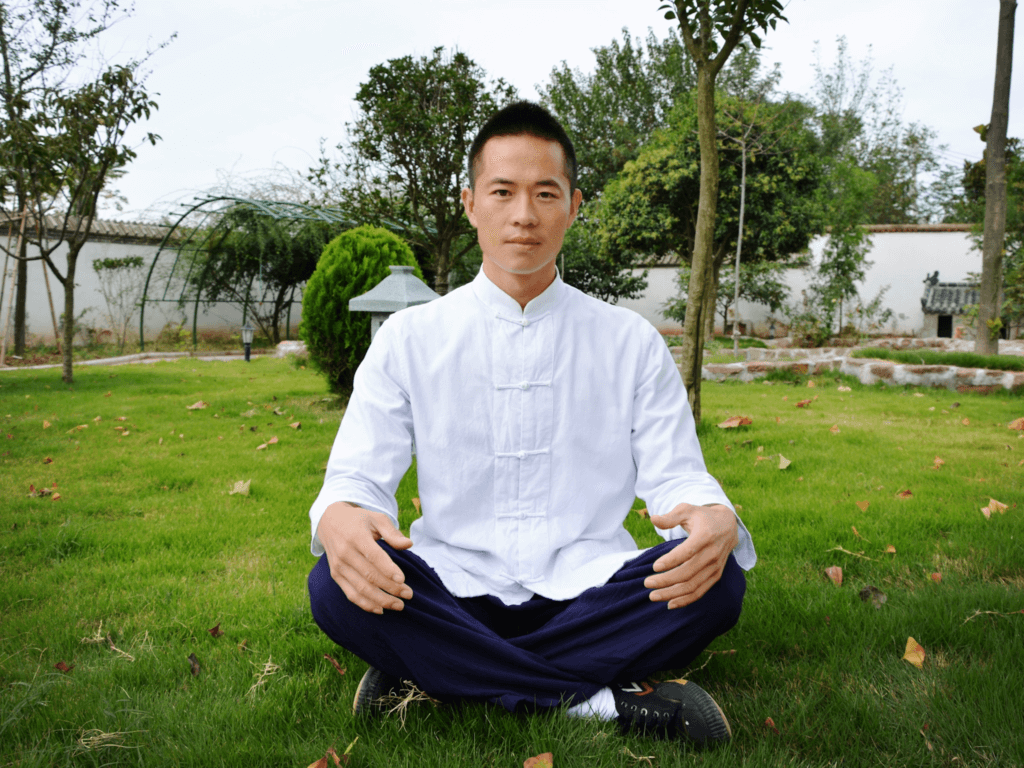
Discover the essence of Wushu through the eyes of Master Bao. From his roots in Xinyi to training at Shaolin Temple, delve into his Wushu journey, the the mission of Maling Shaolin Kung Fu, and the transformative power of martial arts.


